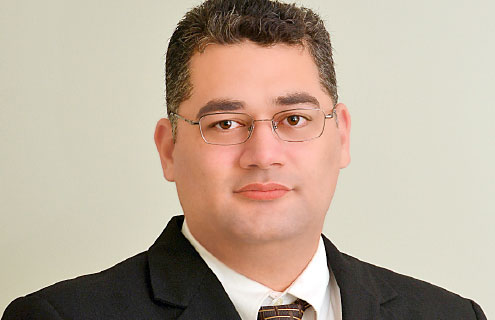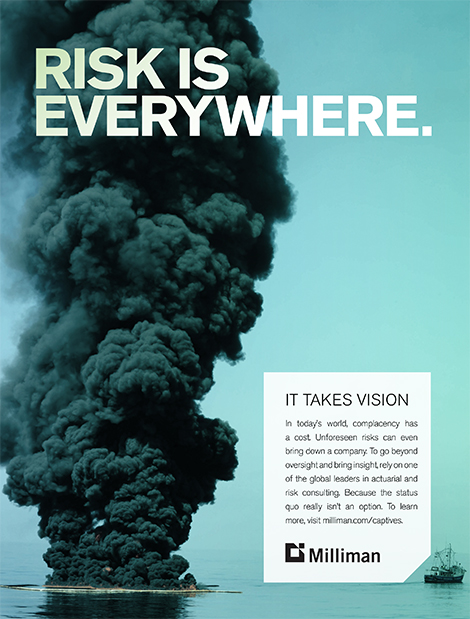The Cook Islands was selected as the domicile of choice for the Pacific Catastrophe Risk Insurance Facility (PCRIF) based on its well-established international financial services sector, and the strength of its regulatory regime and implementation of international standards.
The Cook Islands was selected as the domicile of choice for the Pacific Catastrophe Risk Insurance Facility (PCRIF) based on its well-established international financial services sector, and the strength of its regulatory regime and implementation of international standards.
In June of this year, the Cook Islands passed the Pacific Catastrophe Risk Insurance Facility Act 2016 with the purpose of establishing a legal framework for the PCRIF, facilitating the funding thereof, and allowing participating Pacific island countries greater management of disaster and climatic risk financing on the regional level.
The PCRIF established under the act is essentially the continuation of a Pacific catastrophe risk insurance pilot programme launched in January 2013. The pilot programme is a product of an initiative from 2007 designed to provide Pacific island countries with disaster risk assessment and financing tools to allow enhanced disaster risk management and climate change adaptation. The initiative’s progress was made possible through the collective efforts of the World Bank, Asian Development Bank, Pacific Islands Forum Secretariat and the Secretariat of the Pacific Community Applied Geosciences and Technology Division with financial support from the government of Japan, the Global Facility for Disaster Reduction and Recovery and the EU.
A number of countries have pledged financial commitments towards expanding the initiative, including Germany, the UK, US, and Japan, with some of those commitments formally announced during the Paris COP21 climate negotiations in December 2015. Similar disaster risk management initiatives are also ongoing in the Caribbean and African regions, namely the Caribbean Catastrophe Risk Insurance Facility and the African Risk Capacity.
The continuation of the pilot programme into the PCRIF allows participating Pacific island countries to continue receiving the benefits of the pilot programme and access to regional risk pooling mechanisms to secure insurance coverage for natural disasters through the international reinsurance market at competitive prices. With the aim to increase the financial resilience of Pacific island countries and improve capacity to quickly meet funding needs due to major disasters, the programme provides direct support to governments of participating Pacific island countries to finance immediate disaster relief and provides advisory services relating to public financial management of disasters.
The programme has already provided disaster assistance over the past three years and paid out approximately $3.2 million to participating Pacific island countries in relation to natural disasters. In January 2014, Tonga was paid $1.27 million after the impact of Cyclone Ian, while in March 2015 Vanuatu was paid $1.9 million in the aftermath of Cyclone Pam. The insurance coverage provided under the programme covers some portion of major disaster losses, which may include losses related to a disruption of central government operations and basic public services, but is unlikely to be used for low disaster losses from frequent and less severe disaster events where risk-retention mechanisms such as contingency budgets and national reserves are maintained by participating Pacific island country governments.
The current participating Pacific island countries are the Cook Islands, the Marshall Islands, Samoa, Tonga and Vanuatu. With the establishment of the legal framework under the recent act, it is anticipated that more Pacific island countries will join PCRIF.
The act establishes PCRIF by capitalising on legislation for foundations and captive insurance already in place in the Cook Islands. Enacted this year with bipartisan support, the act forms two legal entities.
The first legal entity is the Pacific Catastrophe Risk Insurance Foundation administered by a council of members consisting of each participating Pacific island country and four members representing developing partners. This structure ensures that all participating Pacific island countries have ownership over the management of PCRIF while those partners contributing to the establishment of PCRIF maintain input in ensuring its purposes are met.
The rules of the foundation allow for the appointment of an enforcer, similar to the role of a protector used in international trust structures, which may be given functions or powers under the rules of the foundation. Such enforcer functions could include powers to direct or disapprove certain specified actions of the council, adjudicate council member disputes or matters of interpretation relating to foundation rules, or even require the production of financial statements and accounting of foundation assets.
The Cook Islands Foundations Act 2012 requires that if an enforcer is appointed in a foundation that such enforcer take reasonable steps to ensure that the council of a foundation carries out its functions. The option of having an enforcer allows for additional safeguards in ensuring the purposes of PCRIF are fulfilled.
The second legal entity established under the act is the Pacific Catastrophe Risk Insurance Company with its ownership resting solely with the foundation. The insurance company is to be licensed under the Cook Islands Captive Insurance Act 2013 and allows it to undertake captive insurance business for the benefit of PCRIF’s participating Pacific island countries.
While the foundation ensures sustained support from all stakeholders by providing them with representation on the foundation’s council, the insurance company is able to focus on insurance-technical decision making, which minimises political interference risk to business operations.
Together with the act, the foundation and insurance company provides the structure for PCRIF to be administered and regulated from the Cook Islands. The Cook Islands’s financial services industry is regulated by the Financial Supervisory Commission, and the strength of its regulatory framework is reflected in the meeting of international standards. In 2009, the Cook Islands was positively evaluated by the Asia Pacific Group on money laundering, a Financial Actions Task Force style regional body, resulting in the Cook Islands being in the top 20 percent of the 165 nations assessed for implementing international regulatory standards.
Positive evaluations were also given in both peer review phases by the Global Forum on transparency and exchange of information for tax purposes, with the second phase report published in 2015. The Cook Islands has also committed to the automatic exchange of information and anticipates the common reporting standard to be fully implemented by 2018.
The World Bank and its partners have played a vital role in the realisation of PCRIF being established and domiciled in the Cook Islands. The selection of the best domicile was carefully considered where legal and regulatory framework also allowed for flexibility and stability. With the assistance of financial contributions from donor countries, the formation of PCRIF is arguably the most cost-effective option for sustainable parametric insurance coverage for disasters in the Pacific that still ensures ownership over management of PCRIF is retained by participating Pacific island countries.
Furthermore, in addition to the benefits of insurance coverage reducing the financial vulnerability of Pacific island countries to natural disasters, the establishment of PCRIF further enhances opportunities in the Pacific region towards building technical insurance expertise and support.





